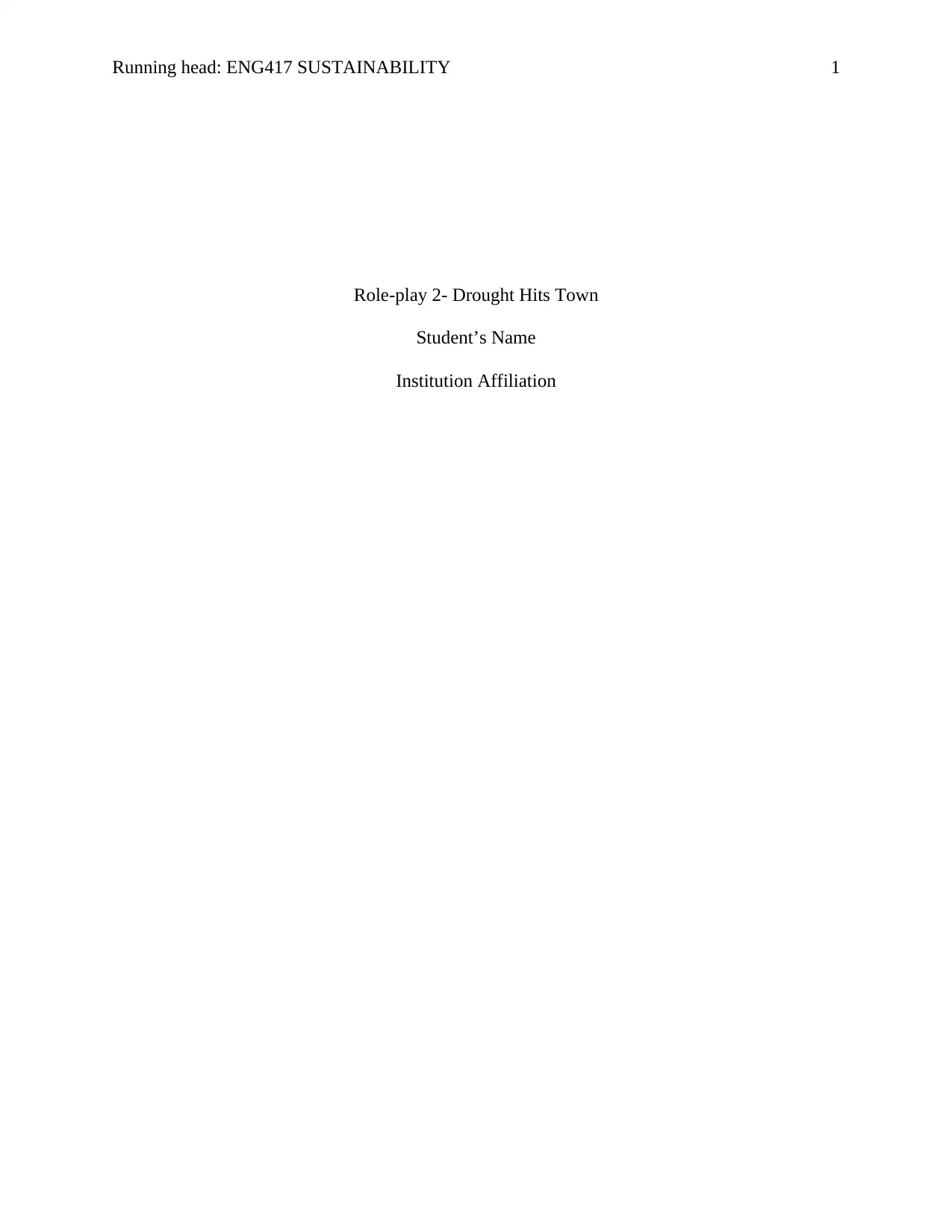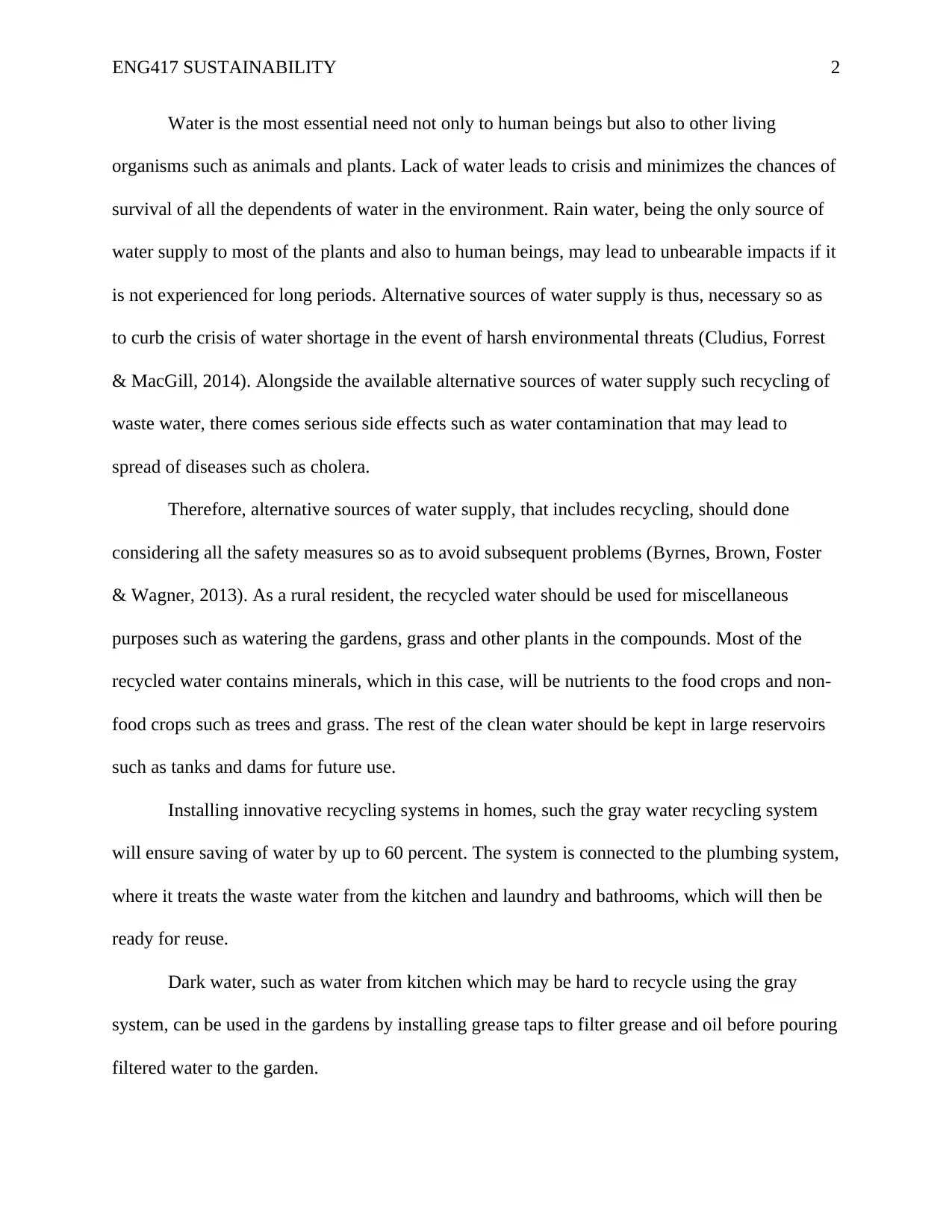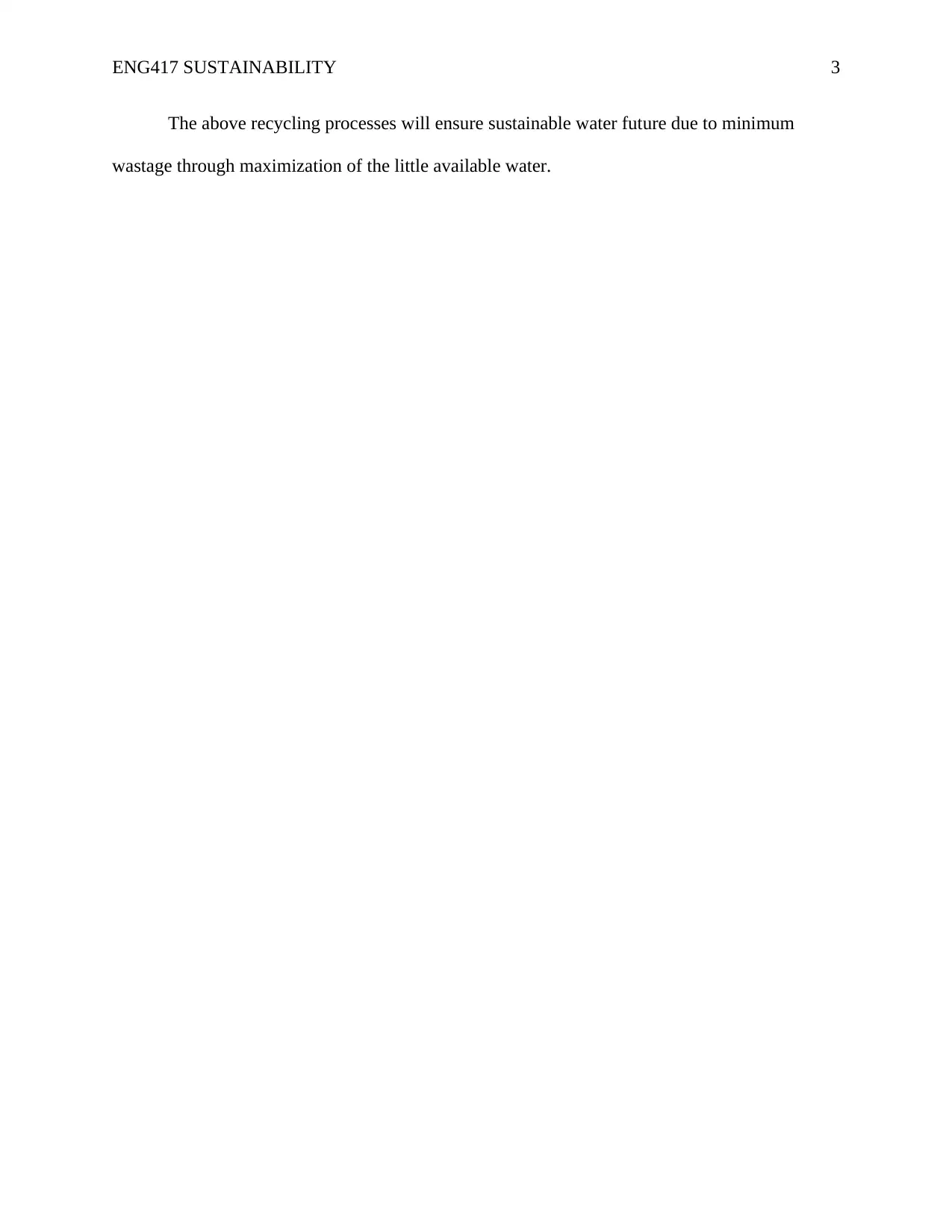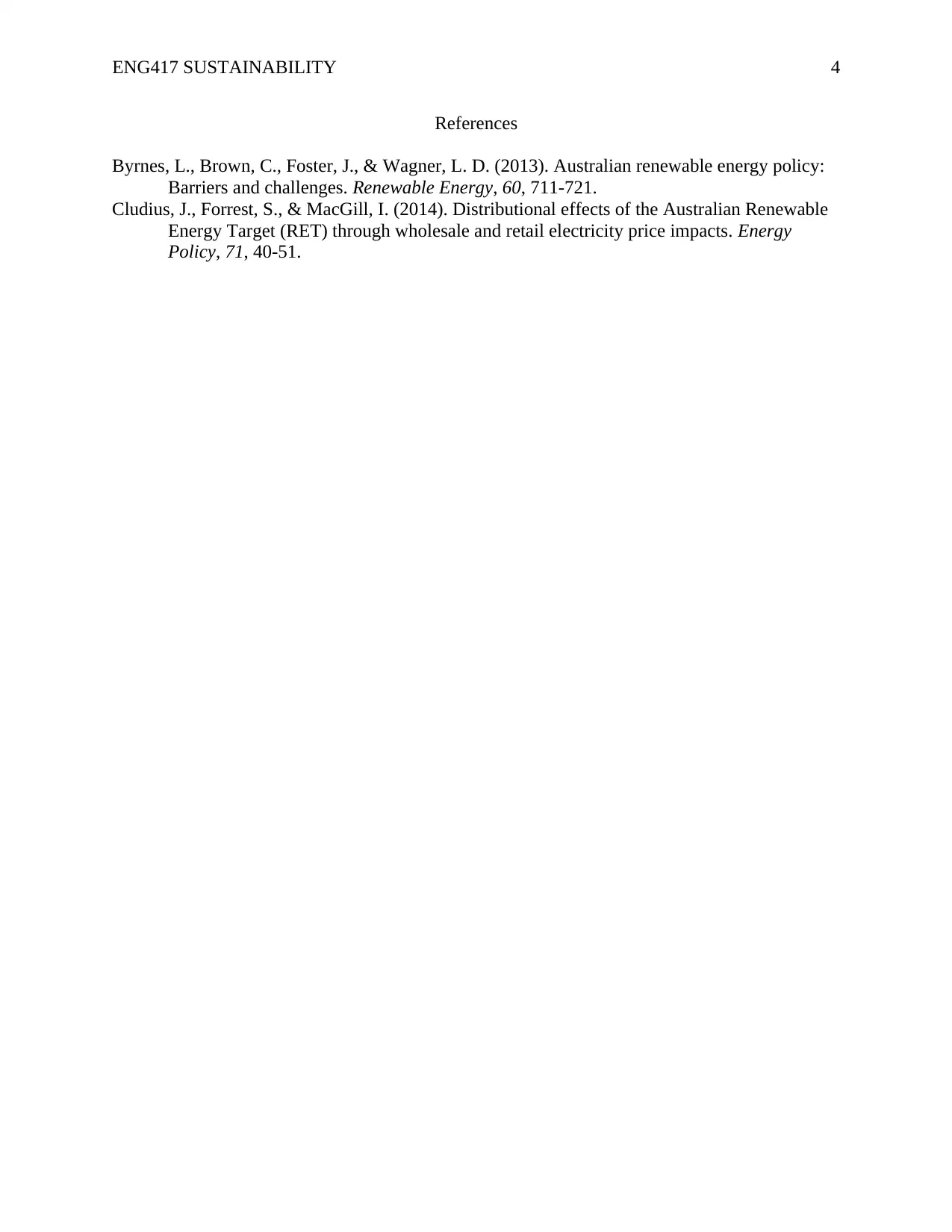ENG417: Sustainability Report: Drought and Water Recycling Solutions
VerifiedAdded on 2020/04/07
|4
|483
|49
Report
AI Summary
This report, prepared for ENG417, addresses the critical issue of water scarcity, particularly in the context of drought. It emphasizes the importance of water conservation and the implementation of sustainable practices. The report highlights the need for alternative water sources, such as recycled water, to mitigate the impact of droughts. It also discusses the benefits of recycling wastewater, including the use of grey water systems and the installation of grease traps for kitchen water. The report stresses that recycling minimizes wastage and ensures a sustainable water future. The report concludes with a review of the references to support the information provided.
1 out of 4





![[object Object]](/_next/static/media/star-bottom.7253800d.svg)